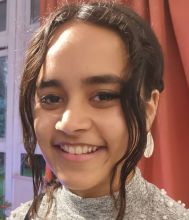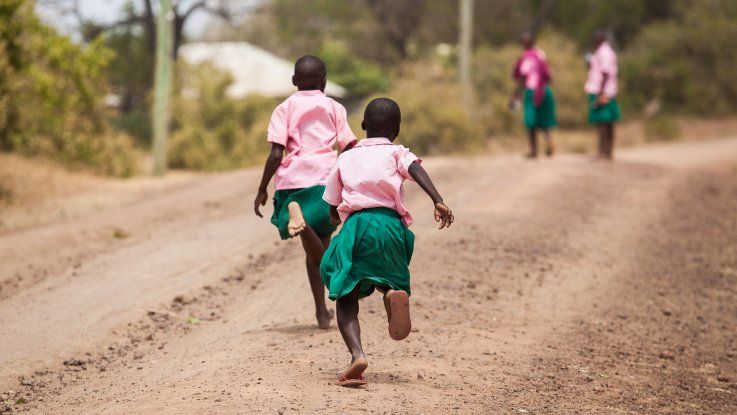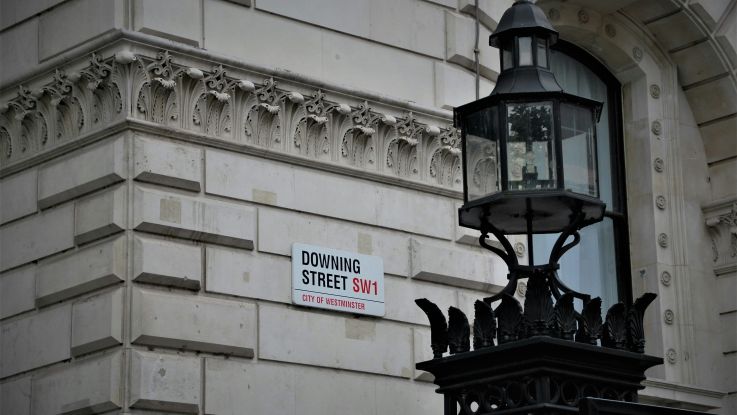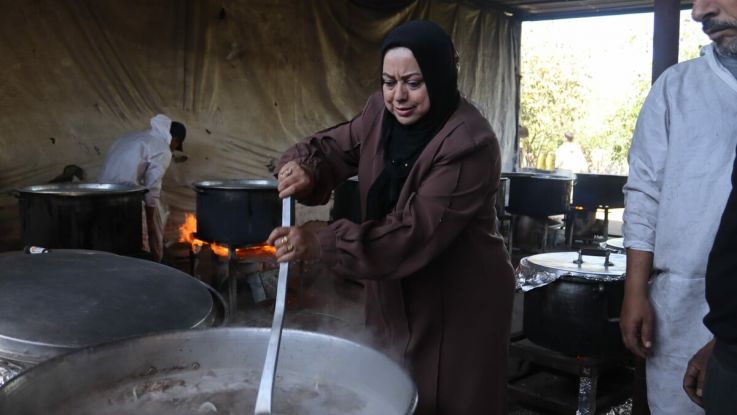Why I became an activist - building solidarity with girls globally
24 November 2022
As the 16 Days of Activism against Gender Based Violence starts, ActionAid Community Campaigner, 20-year-old Sharvari reflects on how she became an activist and what activism really means.
Our girl-led research project, designed and carried out by teams in Bangladesh, Ethiopia, Indonesia and the UK, provides an opportunity to shift power back to girls and express their power to make change. Photo: Maitree Muzumdar/ActionAid
In March 2022, I went to an evening talk with education activist Vee Kativu and Nobel Peace Prize winner Malala Yousafzai which inspired me to start my activism journey.
But when I got home, the self-doubt kicked in. What did I have to offer and where could I even start?
In that moment it felt like I had to single-handedly dismantle the patriarchy. While I would have loved that (and it would’ve been incredibly impressive), sometimes we feel like we have to fix everything by ourselves, ultimately leaving us paralysed. I have since learnt that becoming a Community Campaigner or activist alongside others is the way to go because we have more strength when we unite with each other.
Why I became a community activist
I went to an all-girls school, and it often felt like it was a competition between us to get our voices heard or that there wasn’t enough space for all of us to have success.
My parents also think I have really big ideas about the world and the impact I can have. I think that is because the older generation was told they couldn’t make change.
Also, the government and people in power haven’t been listening to young girls and women for too long.
This is just another way the patriarchy controls women – it makes us believe there is limited space for women and what we can achieve.
But I believe we can. The more activism I do, and the more women I see at the top, the more I realise that there is space for us all, myself included.
I think we have to be bold with our voices because all over the world girls have their power snatched away from them. Their voices are silenced or overridden by others who think they know what’s best. We have to put power back into the hands of girls.
One of the main reasons I’m so passionate about campaigning for ActionAid is that they prioritise girls and put them at the forefront of their decisions and funding. They want to hear girls' voices.
Through my work as a Community Campaigner at ActionAid, I am learning that power is shared and it’s the small actions like signing petitions and having difficult conversations that really make the difference.
16 days of Activism against Gender-Based Violence
This year, for the annual 16 days of Activism against Gender-Based Violence, ActionAid UK will shine a light on "Building power together: a girl-led research project" that gives power back to the girls in their own communities.
The research highlights the pressing need for action against gender-based violence and its impact on girls which worsened over the pandemic.
Adolescent girls and young women in Bangladesh, Ethiopia, and Indonesia investigated the effect of the pandemic on mental and sexual health services, and education. They bravely confronted members of their communities including men during interviews on subjects such as menstruation, violence and child marriage.
It is this kind of courage that inspires me and motivates me to continue campaigning with ActionAid; the strength of not just these girls but an organisation full of inspiring women.
An illustration shows girls' struggle for safety during the pandemic .
Giving power back to girls
At the start of November 2022, ActionAid UK ran an exciting discussion with some of the girls and young women involved in the research in Bangladesh and Ethiopia. The panel was called ‘Girls Leading the Way’ and I was asked to join.
During the panel, the girls addressed the lack of access to quality health services, lack of information on mental health and sexual and reproductive health, and the alarming rates of child marriage, unplanned pregnancies and sexual harassment globally.
It feels like since the pandemic we’ve taken a step backwards in our efforts to reduce gender inequality. Witnessing these impressive young women debate important issues in person made these concerns that much more pressing - they are not just another statistic in a research paper. These girls know the changes they wish to see and they have the solutions within them.
For example, one of the female panellists called for governments to give girls the power to make decisions about where funding needs to go, through girl-led groups and programmes and invest from the bottom up in these services.
The UK government needs to reinstate funding for women's and girls’ rights fully. It needs to prioritise services that have been most affected by the pandemic.
Violence against women and girls remains the most pervasive form of human rights violations, with a third of women and girls around the world reporting personal incidents. Currently, many girls are stuck under someone else’s power; their voices are silenced or overridden.
This needs to end. We need to raise more awareness of the issue and one way to do this is to get more people to engage with the incredible research that the girls led.
We need to recognise our power, our voices, and more importantly, our actions matter. Girls want change. Let's do our bit to help achieve that.
Find out more about ActionAid’s Building power together: a girl-led research project.



